Some marriages know the joy of intimate relationships
Podcast: Embed
Subscribe: RSS
Podcast: Embed
Subscribe: RSS

Jackie Hill Perry is one of the most sought after speakers and poets in the country. Her passion for God and using her pen to serve Him led her to write her most recent book: Holier Than Thou: How God’s Holiness Helps Us Trust Him. UrbanFaith sat down to discuss the new book with her. The interview has been edited for clarity. More information on the book is below.
If God is holy, then He can’t sin. If God can’t sin, then He can’t sin against you. If He can’t sin against you, shouldn’t that make Him the most trustworthy being there is?
Bestselling author Jackie Hill Perry, in her much-anticipated follow-up to Gay Girl, Good God, helps us find the reason we don’t trust God—we misunderstand His holiness.
In Holier Than Thou, Jackie walks us through Scripture, shaking the dust off of “holy” as we’ve come to know it and revealing it for what it really is: good news. In these pages, we will see that God is not like us. He is different. He is holy. And that’s exactly what makes Him trustworthy. As it turns out, God being “holier than thou” is actually the best news in the world, and it’s the key to trusting Him.
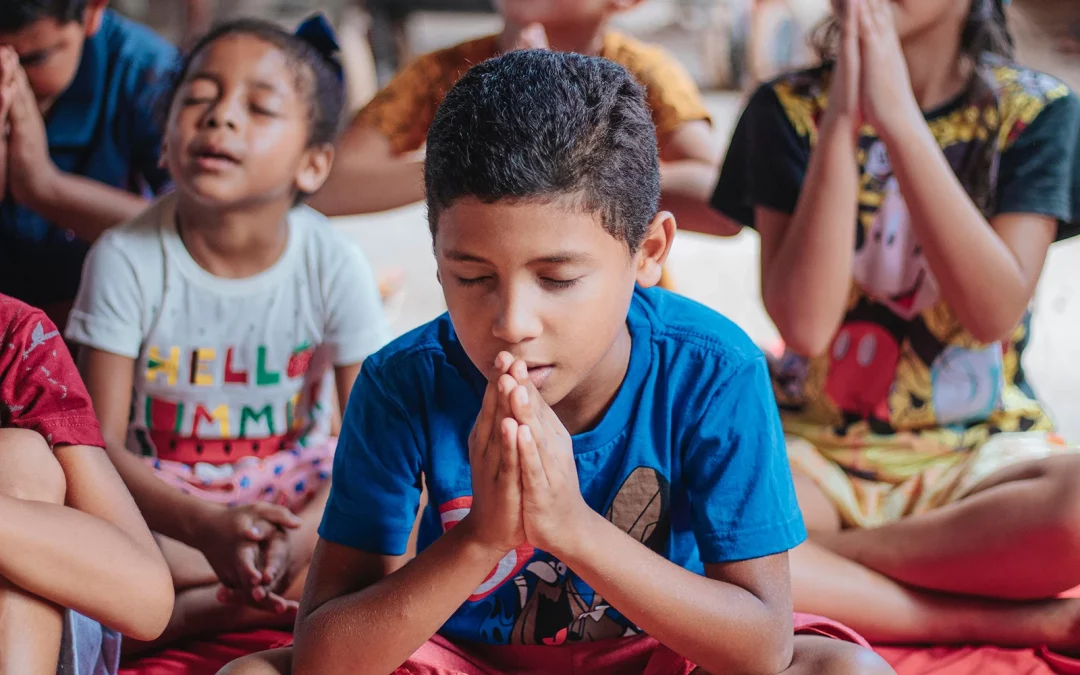
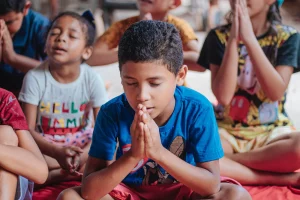
(RNS) — Sunday school and other Christian education programs have suffered during the COVID-19 pandemic, with half of congregations surveyed saying their programs were disrupted.
A March 2022 survey by the Hartford Institute for Religion Research found that larger churches with more than 100 people were more successful in maintaining their educational programming for children and youth, often using in-person or hybrid options. Smaller churches, especially those with 50 or fewer attendees, were least likely to say they continued religious education without disruption.
Scott Thumma, principal investigator of the Exploring the Pandemic Impact on Congregations project, said the findings echoed concerns about general education of schoolchildren, where researchers have seen declines in learning over the last two years.
“My sense is that people knew what good robust Sunday school was or what a successful vacation Bible school was,” said Thumma, drawing in part on open-ended comments in the survey. “And they couldn’t parallel that using Zoom or using livestreaming or using take-home boxes of activities. It just wasn’t the same thing. And so when they evaluated it, it just didn’t measure up to what they previously knew as the standard of a good quality religious education program.”
The findings are the third installment in the five-year project, a collaboration with 13 denominations from the Faith Communities Today cooperative partnership and institute staffers.
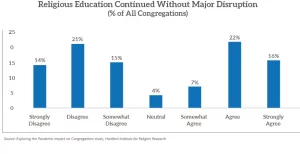
The new report, “Religious Education During the Pandemic: A Tale of Challenge and Creativity,” is based on responses from 615 congregations across 31 denominations.
Comparing data from 2019, churches surveyed in March 2022 reported that the attendance of their religious education programs had decreased an average of 30% among children younger than 13 and 40% among youth, ages 13-17.
“Analysis showed that those who closed their programs had the greatest decline in involvement even after they restarted,” the new report states. “Likewise, churches that moved religious education online lost a higher percentage of participants than churches who modified their efforts with safety protocols but continued meeting in person either outdoors or in small groups.”
The report notes that it’s not surprising the smallest churches experienced the most disruption in their religious education, given the decline in volunteer numbers and additional stresses on clergy during the pandemic.
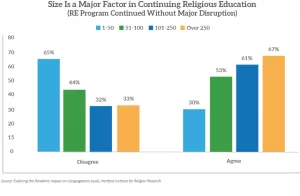
“In the smallest churches (1-50 attendees) pastors were most likely in charge of the religious education programs, while for those between 51 and 100 worshippers, volunteers bore the bulk of leadership responsibilities,” according to the report.
Overall, evangelical churches reported experiencing the least disruption to their educational programs, while mainline churches reported the most, followed by Catholic and Orthodox congregations.
Vacation Bible school, long a staple of congregational outreach to local communities, has also been shaken by COVID-19. More than a third (36%) of churches offered such programs prior to the pandemic. That number decreased to 17% in 2020 and jumped back to 36% in the summer of 2021. Slightly less than a third (31%) reported VBS plans for 2022.
While children’s programming was greatly affected by congregational change during the pandemic, adult religious programs saw the smallest decreases compared with pre-pandemic levels, with a quarter growing since 2019 and an almost equal percentage (23%) remaining even.
But, as with children’s programs, churches with 50 or fewer worshippers saw the greatest loss in adult religious education, while those with more than 250 in worship attendance increased their adult programs by an average of 19%.
Some congregations reported moving Sunday school activities to weeknights or vacation Bible schools from weekday mornings to later hours, with mixed results.
“One said they ‘went from a typical 200+ kids to about 35,’” the report notes, and they “’shortened the number of days and moved VBS to the afternoon.’”
Thumma said innovations including intergenerational and kid-friendly programming helped sustain programs for people of all ages in some congregations. These included revamping of the children’s message time during worship to be more inclusive or older members greeting children who run by during Zoom sessions. Some churches called their all-ages activities “messy church” or “Sunday Funday” as they used interactive educational events.
“It becomes, out of necessity, intergenerational because that allows you to have robust energy and lots of people there,” he said. “But it really is directed at the kids being involved in the life of the congregation in a way that isn’t, like, ‘OK, you go to your class’ and ‘you go to your classes,’ and the classes don’t ever mingle.”
Whether creative steps such as new intergenerational activity will continue remains to be seen, Thumma added.
“I think it should because that’s a valuable strategy,” he said. “One of the things that we’ve seen in lots of our research is the more intergenerational the congregation is, the more it has a diversity of any degree, the more likely they are to be vital and thriving.”
The findings in the new report of the project, which is funded by the Lilly Endowment, have an estimated overall margin of error of plus or minus 4 percentage points.
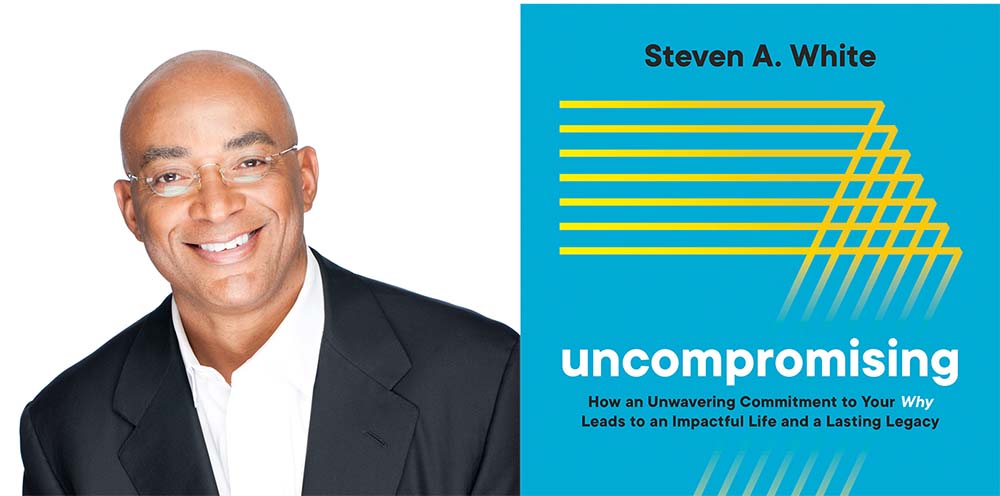
Steve White is a man with an inspiring life and an incredible legacy. He began his journey as the child of a single mother from the housing projects with obstacles set in the way of his success. And yet as a man of faith who embraced his “why,” he overcame the difficulties and is now one of the most successful Black leaders in the nation as the President of Comcast.
As we look towards Mother’s Day, he uplifts the impact of his mother on his story. UrbanFaith sat down with Steve to discuss his book Uncompromising: How an unwavering commitment to your why leads to an impactful life and a lasting legacy. The full interview is above, more about the book is below.
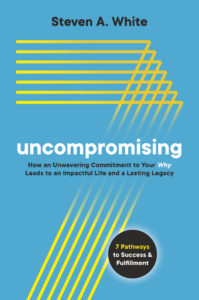
When you adhere to Steve’s seven pathways discussed in the book, you are standing by your why with an uncompromising mindset. And you are doing it with a winning and impactful approach that can help you lead a more fulfilling and purposeful life, while helping you guide others and leave a lasting legacy.
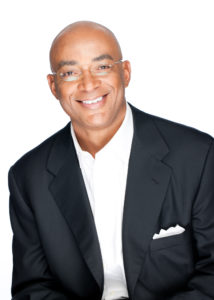

1 Well then, should we keep on sinning so that God can show us more and more of his wonderful grace? 2 Of course not! Since we have died to sin, how can we continue to live in it? 3 Or have you forgotten that when we were joined with Christ Jesus in baptism, we joined him in his death? 4 For we died and were buried with Christ by baptism. And just as Christ was raised from the dead by the glorious power of the Father, now we also may live new lives.
5 Since we have been united with him in his death, we will also be raised to life as he was. 6 We know that our old sinful selves were crucified with Christ so that sin might lose its power in our lives. We are no longer slaves to sin. 7 For when we died with Christ we were set free from the power of sin. 8 And since we died with Christ, we know we will also live with him. 9 We are sure of this because Christ was raised from the dead, and he will never die again. Death no longer has any power over him. 10 When he died, he died once to break the power of sin. But now that he lives, he lives for the glory of God. 11 So you also should consider yourselves to be dead to the power of sin and alive to God through Christ Jesus.
12 Do not let sin control the way you live;[a] do not give in to sinful desires. 13 Do not let any part of your body become an instrument of evil to serve sin. Instead, give yourselves completely to God, for you were dead, but now you have new life. So use your whole body as an instrument to do what is right for the glory of God. 14 Sin is no longer your master, for you no longer live under the requirements of the law. Instead, you live under the freedom of God’s grace.

There is great power in what we permit to happen. We do not recognize this power we have because it is invisible and not obvious. But it is present. This scripture offers a viewpoint of self-responsibility, reminding us that we usually have a choice in what we allow to happen to our body.
The language used to describe wickedness is interesting. It can be an instrument. Which means wickedness has a rhythm and can flow like a song to produce a melody that can create memories. By the same token, the scripture describes righteousness as an instrument which means it can flow in our lives like a beautiful song.
When you think of music, it impacts everyone in a different way. There are certain songs that you hear that trigger traumatic memories, moments, or times in your life that you would rather forget. On the other hand, there are certain songs that will motivate you and inspire you to do better and push yourself to do great things.
The scripture likens righteousness to an instrument that can orchestrate appreciation and honor God for what He has done for us. Righteousness is by grace through faith. We can never be perfect or do what is right fully for there is a flesh nature in us that always desires to do what is wrong. However, as we allow the righteousness of Christ to move through our lives, the nature of God becomes appealing to us. By grace, we show our appreciation to God by resisting sin and fulfilling our destiny one day at a time.
Just as wickedness is likened to an instrument, righteousness is also likened to an instrument. I is up to us to choose what type of influence we desire to govern our lives. The scripture is clear, it is wise to choose righteousness, because we are no longer enslaved by sin. We live by the grace of God through faith.
Dear Father,
Thank you for the gift of righteous living. I am grateful for the power of willful decision, to make the choice every day to follow you. Help me by faith to resist sin and desire righteousness. Purge the appetite of my soul that may desire to stay enslaved to sin, and arouse a desire of freedom through Christ. Let me please you by how I live, and let righteousness be revealed in my life as a testament of my faith in Jesus Christ.
In Jesus Name,
Amen